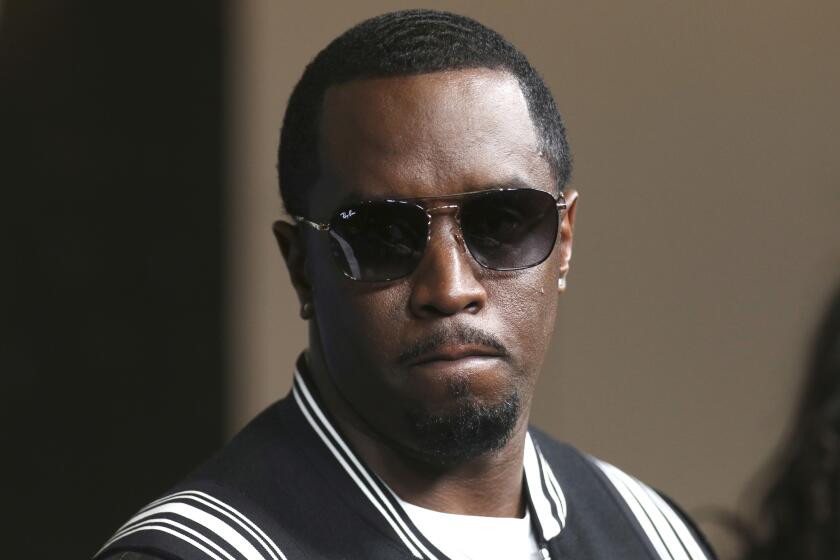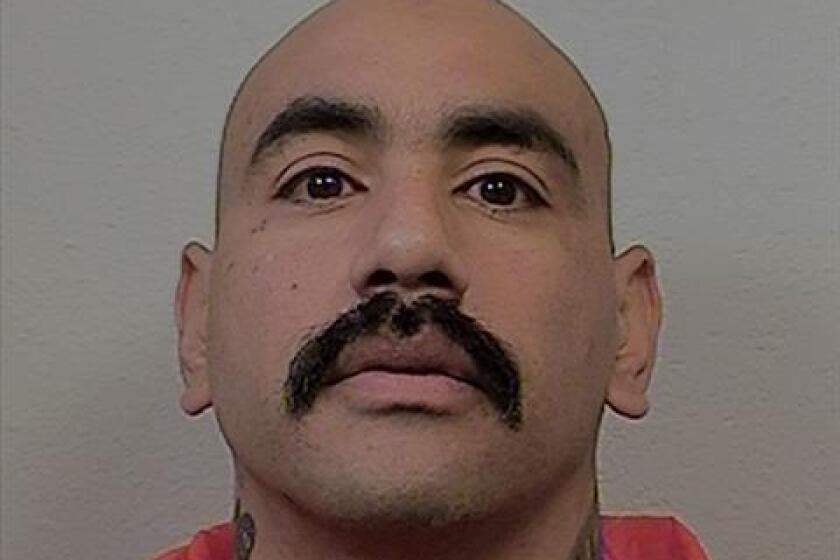Murray didn’t have a signed contract with AEG
Dr. Conrad Murray, who administered the fatal dose of the anesthetic propofol to Michael Jackson, did not have a signed contract with the promoter of the London concerts by the singer, who died two weeks before they were scheduled to begin.
Whether the contract was valid is a major issue in the wrongful death suit Jackson’s mother and three children have filed against Anschutz Entertainment Group. Murray, who worked with the singer for two months to prepare him for the concerts, signed his contract the night before Jackson died, but neither the singer nor a company executive signed.
But testimony Monday revealed that tour director Kenny Ortega didn’t have a contract either, just a series of emails.
Asked if AEG paid Ortega based on the emails, Shawn Trell, AEG’s general counsel answered, “In Kenny’s case, that’s true.”
“And Dr. Murray had an agreement with AEG based on a series of emails?” Panish asked.
“No. I don’t believe so,” Trell replied.
Asked why Ortega didn’t need a contract, Trell said, “Kenny Ortega is different.”
Panish showed the jury a series of emails between Murray and AEG executives, including one dated May 8, 2009, in which AEG’s Paul Gongaware agreed to pay the doctor $150,000 a month. Jackson died June 25, 2009.
In another email, tour accountant Timm Woolley went over details of employment with Murray, including a provision that if he didn’t travel on Jackson’s chartered plane, he would fly first class.
In a May 22, 2009, email, Murray wrote to Woolley that he was faxing over a voided check so that money could be wired directly to his account.
When Panish insisted that Murray was working for AEG in May 2009, Trell replied: “No. I totally disagree with that statement.”
The Jacksons’ suit contends that AEG “hired and controlled” Murray, while the entertainment giant argues that any money it was supposed to pay Murray was an advance to Jackson, who hired the doctor.
Previous testimony has shown that Murray was never paid. On Monday, Trell was shown a report that AEG sent to Michael Jackson’s estate that included a request that it be repaid $300,000 it had given Murray.
“To me, it’s a mistake,” Trell said.
Panish also showed the jury an email Ortega had sent to Randy Phillips, president and chief executive of AEG Live, five days before Jackson died, in which Ortega said the singer was in frail mental health.
Ortega wrote “trouble at the front” in the email’s subject line.
“There are strong signs of paranoia, anxiety and obsessive-like behavior,” Ortega wrote. “I think the very best thing we can do is get a top Psychiatrist in to evaluate him ASAP. I honestly felt if I had encouraged or allowed him on stage last night he could have hurt himself. I believe we need professional guidance in this matter.”
Trell said the company held a meeting that day with Jackson and Murray, “so I think they took it seriously.”
At the meeting, Jackson said he would improve and Murray agreed to help. Others have said that Jackson did great during the next two days of rehearsals.
“Michael and the doctor stressed that he was OK. They had it under control,” Marvin Putnam, AEG’s attorney has said.
More to Read
Sign up for Essential California
The most important California stories and recommendations in your inbox every morning.
You may occasionally receive promotional content from the Los Angeles Times.











